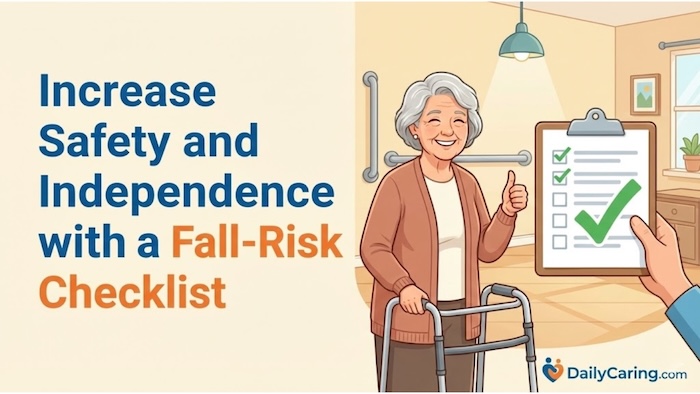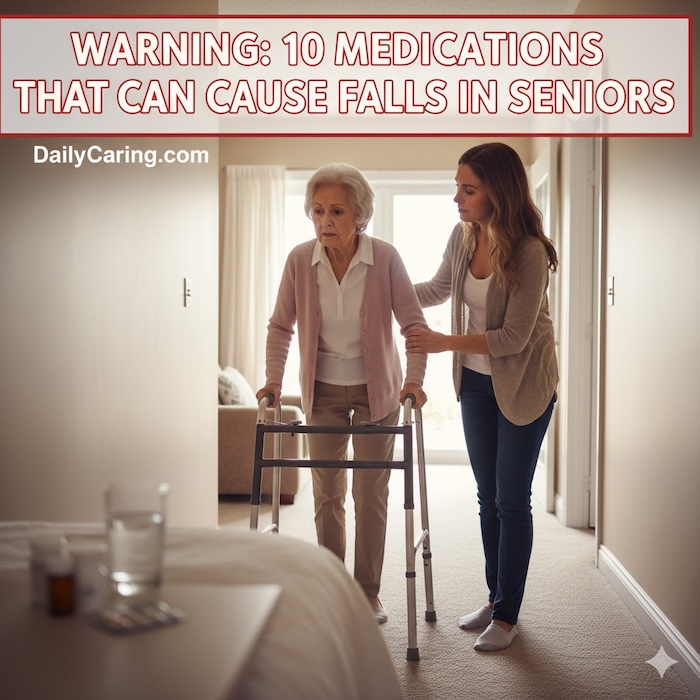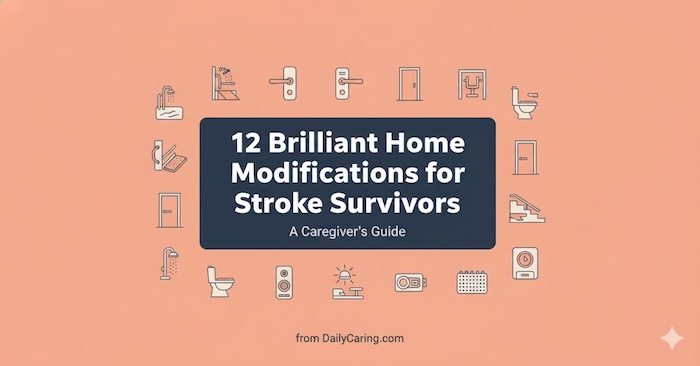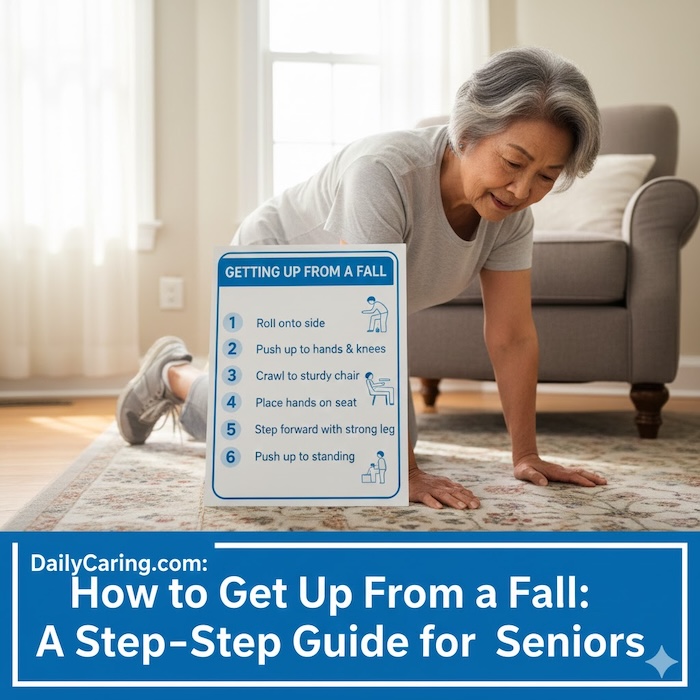Does the worry of a potential fall for your aging loved one sometimes feel like a constant background hum, limiting their freedom and your peace of mind? You're not alone. With more than 1 in 4 seniors experiencing a fall each year, it's a serious concern that can impact safety and hard-won independence.
But what if you could proactively identify and address risks before a fall happens? We've found a powerful, free tool that does exactly that. This guide explains how to use a simple CDC checklist to identify hidden risks, start crucial conversations with doctors, and take practical steps to preserve your loved one's confidence and ability to live on their own terms.

Preventing falls is an effective way to help seniors maintain their independence for longer. Falls cause serious injuries like hip fractures, broken bones, and head injuries – all of which lead to a decrease in abilities.
For Aging Adults, Safety and Independence are Paramount
We found a free checklist from the Centers for Disease Control and Prevention (CDC) that estimates the risk of falls among older adults and identifies the causes of fall risk.
It also provides information that helps you discuss specific concerns about real-life situations with your doctor.
We explain how to use this fall-risk checklist to take preventive action before a fall occurs.
The Fall-Risk Checklist Alerts You to Falls Before They Occur

The CDC's fall risk checklist includes 12 simple yes/no questions to assess an older adult’s fall risk.
It asks about their history of falls, how steady they feel in real-life situations, medications, and mood. If they score 4 points or more, they have a greater risk of falling.
If the score shows that your older loved one's fall risk is high, talk with their doctor as soon as possible.
The Fall Risk Checklist Score Helps Doctors Make Better Recommendations
Showing the completed checklist to the doctor gives them a better idea of which types of movement or other issues are increasing your older adult’s fall risk.
When the doctor has more information, they can make better recommendations to reduce the risk of falls.
Final Thoughts About the Fall Risk Checklist
Taking the step to complete the fall-risk checklist is a profound act of care. It moves you from worry to empowered, preventive action. By identifying specific risks, you and your loved one’s doctor can create a targeted plan – whether it involves adjusting medications, recommending physical therapy, or making home modifications.
This process isn't about restricting independence; it's about proactively safeguarding it. Remember, the goal is to build a safer environment that supports confidence and freedom, allowing your senior to enjoy their daily life with greater security and peace of mind for years to come.
Recommended for you:
- 3 Easy Tai Chi Videos for Seniors to Prevent Falls, Improve Balance and Strength
- Home Modifications for Seniors: A Room-by-Room Guide for Safety and Independence
- Reduce Falls With 2 Useful at-Home Balance Exercises for Seniors
About the Author

Connie is the founder of DailyCaring.com and was a hands-on caregiver for her grandmother for 20 years. (Grandma made it to 101 years old!) She knows how challenging, overwhelming, and all-consuming caring for an older adult can be. She also understands the importance of support, especially in the form of practical solutions, valuable resources, and self-care tips.













